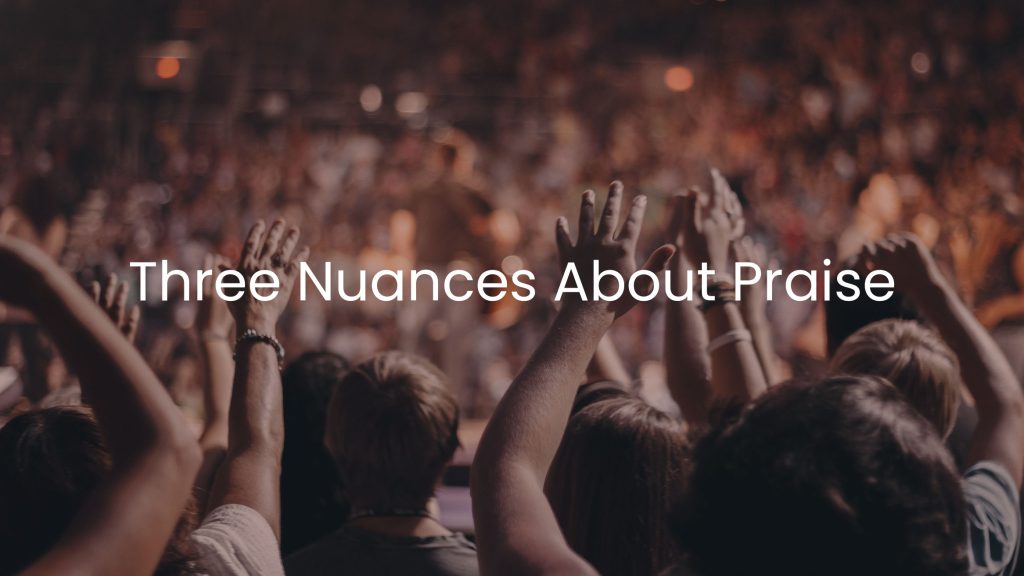|
Getting your Trinity Audio player ready...
|
We learn about praise in the Psalms.
The word “praise” is mentioned about 10 times in the entire New Testament, but about 120 times in the Psalms. My favorite verse on praise comes from the shortest chapter in the Psalms (and the Bible) of just two verses.
Praise the Lord, all nations! Extol him, all peoples! For great is his steadfast love toward us, and the faithfulness of the Lord endures forever. Praise the Lord! (Psalm 117:1-2, ESV).
If it’s going to be a short chapter, it should be about praise. What can we learn about praise in the Book of Psalms? Below are three nuances* of praise.
Praise re-wires the brain.
Admittedly, we are throwing current science back into Psalms written about 3,500 years ago, but read carefully this verse. . .
But I will hope continually and will praise you yet more and more (Psalm 71:14).
The Psalms teach us to praise increasingly when our hope, our goals, even our lives are threatened. Why? We understand today that our response to crises grooves our brains to respond in the same manner the next time we encounter difficulty.
Do we want our brains to be grooved for defeat or hope?
Praise forms a “life attitude” of joy.
Our attitude begins early in life and continues to develop throughout our lives. In 50 years of working as a pastor, I noticed some elderly people become as mean as snakes, and others as gentle as lambs.
The difference — learning to rejoice in and through difficult times. Richard Foster, years ago, wrote a book entitled Celebration of Discipline, and in this book said. . .
Celebration brings joy into life, and joy makes us strong. Scripture tells us that the joy of the Lord is our strength (Neh. 8:10). We cannot continue long in anything without it.
Foster also writes in this book. . .
Celebration also can be an effective antidote for sadness that can constrict and oppress the heart. Depression is an epidemic today and celebration can help stem the tide.
Praise is an act of the will.
We can determine to praise!
It’s difficult to say, “I’m going to fall in love,” or even, “I’m going to have joy in this difficulty,” as in both love and joy, there’s an emotional aspect that eludes our will. The Bible teaches that when we determine to praise God, love and increased joy will follow.
King David writes during his trials. . .
I will give thanks to the Lord with my whole heart; I will recount all of your wonderful deeds. I will be glad and exult in you; I will sing praise to your name, O Most High (Psalm 9:1-2).
That’s three nuances of praise: it re-wires our brain, determines our attitude, and we can discipline ourselves to learn it. Below are three practices that I use to keep praising God.
- In the evening, before sleeping, I think about two or three things for which I can praise God.
- During difficulty, I consider it an opportunity to praise God by thinking, “If I can learn to praise God in this situation, I’ll never be vulnerable to fear and anxiety.”
- I long for the company of those who seek to praise God, and I avoid grumblers!
Amen. Let’s praise God.
*Check out these blogs in Interruptions: #1623 Three Nuances of Love and #1610 Four Nuances of Joy.

